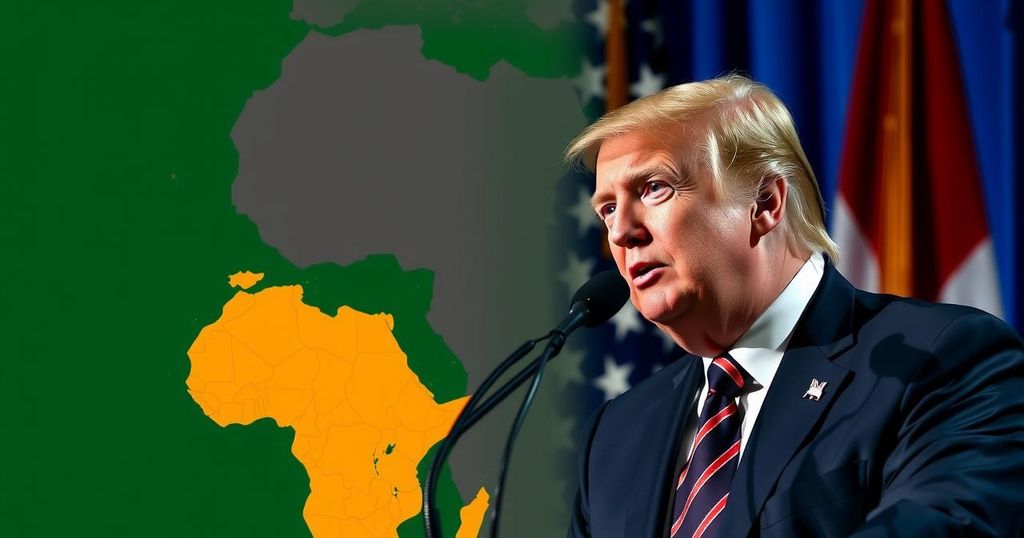Assessing Trump’s Potential Impact on Africa: Opportunities and Risks
The potential return of Donald Trump to the presidency raises concerns about his transactional approach to Africa, which may undermine multilateral peace efforts and empower authoritarian regimes. His previous policies favored direct negotiations with individual states over collective security initiatives, contributing to ongoing instability in regions like Sudan and the Horn of Africa. The shifting geopolitical dynamics necessitate an adaptive strategy from African leaders as they navigate the implications of U.S. foreign policy on the continent’s peace and security.
The potential return of Donald Trump to the presidency raises urgent questions regarding his approach to Africa, characterized by a preference for transactional politics over traditional diplomacy. During his first term, Trump’s stance resulted in stalled multilateral peace efforts, with significant implications for African nations grappling with conflict and instability. The previous strategies, which advocated for a ‘liberal peace’ combining democracy and market openness, appear abandoned in favor of direct negotiations with authoritarian regimes and tactical alliances, such as those made through the Abraham Accords. Africa is presently facing complex geopolitical challenges, especially in regions like Sudan and the Horn of Africa, where external influences from countries like the UAE and Egypt complicate local dynamics. Trump’s foreign policy could prioritize expedient results over principled cooperation, potentially emboldening autocrats and undermining the African Union’s efforts for collective security and democracy. The ongoing crises, exemplified by Sudan’s ongoing war and famine, underscore the dire need for robust international engagement to promote lasting peace and development. The upcoming leadership transition within the African Union could serve as a pivotal moment for African leaders navigating the implications of Trump’s potential return and the regional impact of his policies.
The landscape of political engagement in Africa has recently shifted, particularly with the contrasting approaches of the Obama, Trump, and Biden administrations. The Obama administration worked closely with the African Union to establish a sustainable framework for peacekeeping, which has since deteriorated under Trump’s focus on transactional foreign policy. Trump’s administration favored direct deals with individual states, which created an environment where multilateral cooperation weakened. This pivot from a ‘liberal peace’ model to what has been termed ‘illiberal peace’ reflects a broader international trend within U.S. foreign policy, where geopolitical interests often supersede normative commitments to democracy and human rights.
In summary, if Donald Trump reclaims the presidency, his past strategies suggest a continuation of transactional and potentially destabilizing policies toward Africa. There is a pressing need for African leaders to adapt to this anticipated political landscape while fostering multilateral solutions to existing crises. The evolving geopolitical dynamics in Africa, particularly amid power struggles and external influences, will demand careful negotiation and strategic alignment to maintain peace and security across the continent. The coming year poses both challenges and opportunities for African diplomacy in the context of U.S. foreign policy.
Original Source: www.bbc.com




Post Comment